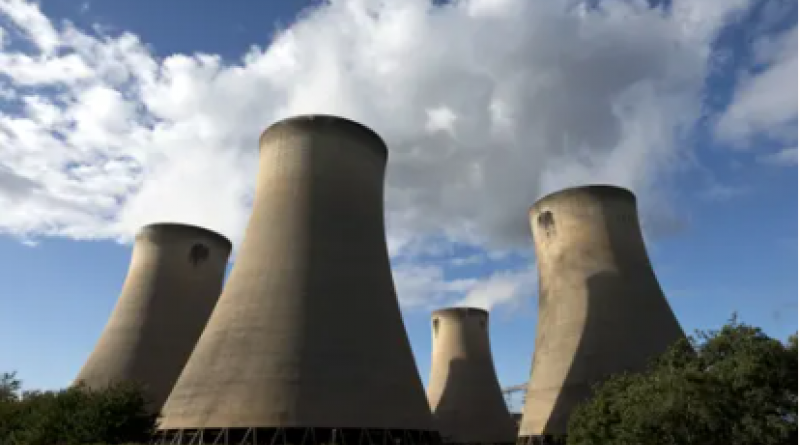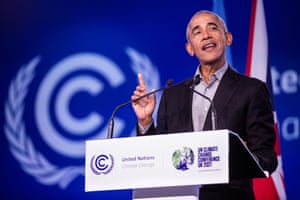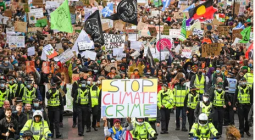Op - Neoliberalism wrecked our chance to fix the climate crisis – and leftwing statements of faith have changed nothing

Atmospheric carbon does not care about culture war. Neither should we.
Why didn’t we nip climate change in the bud?
Nathaniel Rich poses that question in an important article for the New York Times Magazine in 2018 (later published as a book).
He notes that, for a brief period in the late 1980s, a consensus developed on the necessity for action.
Back then, no one considered the science controversial and so a surprising number of mainstream politicians both acknowledged the threat facing humanity and pledged themselves to address it.
“The conditions for success,” Rich says, “could not have been more favorable.”
The opportunity was squandered because of a reluctance to sacrifice “present convenience to forestall a penalty imposed on future generations”, something he attributes to human nature.
The Canadian writer Naomi Klein rejects that part of the argument with a righteous fury.
She insists that, in fact, the timing could not have been worse, since the late 1980s represented “the absolute zenith” of the neoliberal turn.
Rather than human nature, the problem was that, just as “governments were getting together to get serious about reining in the fossil fuel sector, the global neoliberal revolution went supernova, and that project of economic and social reengineering clashed with the imperatives of both climate science and corporate regulation at every turn”.
Fanatically committed to the free market as a regulator of all human social interactions, politicians ruled out public spending or direct bans on emissions. The only measures deemed credible centred on creating trading systems that turned environmental outcomes into commodities on which global financiers could speculate – in essence, nominating the most venal people on the planet as the best bet for saving humanity.
Unsurprisingly, corporate business continued as usual and the environmental disaster grew exponentially worse.
We might complement Klein’s account by noting another way that the climate crisis emerged at a particularly inopportune moment.
The 1980s were, after all, also a decade in which progressive politics changed significantly.
Many of the core assumptions of the left developed from the social movements of the 1960s and the 1970s. That was an era dominated by what in my book Trigger Warnings I call “direct politics”: a time of collective protests, of grassroots mobilisations with a focus on participatory democracy centred on workers, students and the oppressed.

The advocates of direct politics drew connections between seemingly disparate issues (national liberation, black liberation, women’s liberation, gay liberation and so on) arguing that all manner of social ills required material social change, achievable only if the masses united against the small minority that benefited from the status quo.
As the radicalism of the 1960s waned, the mass action of direct politics became more difficult to organise.
Activist and historian Todd Gitlin notes that, from about the mid-1970s, the formerly prevalent commitment to revolutionary ideals gave way to what he calls “the practical pursuit of reforms”. Many ex-radicals managed to find professional outlets for their activism. Some became academics; others formed or joined non-governmental organisations, political parties, consultancies, charities and businesses.
n the new climate of the 1980s, with protests, rallies and strikes smaller and harder to organise than before, leftists became accustomed to presenting arguments in the name of a constituency that no longer mobilised. Rather than the radical participation associated with direct politics, they embraced a “delegated politics”, in which activists – usually with some sort of institutional authority – advocated on behalf of a largely passive rank and file.
That corresponded with different slogans.
Instead of pushing for deep, structural change, they increasingly focused on symbolic or cultural reforms, centred particularly on places like university campuses.
Though many of the demands associated with delegated politics were entirely valid, the new emphasis had profound consequences – and nowhere more so than in relation to climate change.
Global warming is, after all, quintessentially material: a process resulting from the peculiar relationship capitalism mandates between humanity and nature.
Yet the new propensity for activists to see politics primarily in terms of culture enabled corporations to shift the focus away from production and into the symbolic realm.
Climate duly became a central front in the culture war that has raged more or less unabated since the 1990s, a conflict fought out largely at the level of representation.
Abandoning economics to the free market right, progressives sought to inspire change either through individual examples (recycling, bicycle riding, etc) or symbolic events such as Earth Hour.
Politically, environmentalism often manifested in terms of belief rather than action. With conservatives pandering to climate scepticism, liberals voted for candidates who promised they “accepted the science”.
Yet, on their own, such statements of faith changed nothing.
Think of Barack Obama’s soaring speech at Cop26.
Symbolically, his oratory could not be more different from the overt denialism of Donald Trump or the grudging acquiescence of Scott Morrison.
Yet, during an impeccably neoliberal presidency, Obama had, as he later boasted, turned America into the world’s largest oil and gas producer.
In terms of symbolism, Obama stood with progressives against the anti-science Republicanism who despised him. Materially, though, he only intensified the reliance on fossil fuels.
Atmospheric carbon does not care about culture war. Neither should we.
Global warming exacerbates every kind of inequality, disproportionately affecting the poorest and most oppressed people on the planet.
In that way, it creates a tremendous potential constituency for direct politics, for a mass, participatory campaign to fundamentally reshape how humans relate to nature – and to each other. But to seize the opportunity, progressives need a quite different orientation.
If we keep fighting in the realm of symbolism, our last, best chance to save the planet will slip through our fingers, too.
17 November 2021
The Guardian




